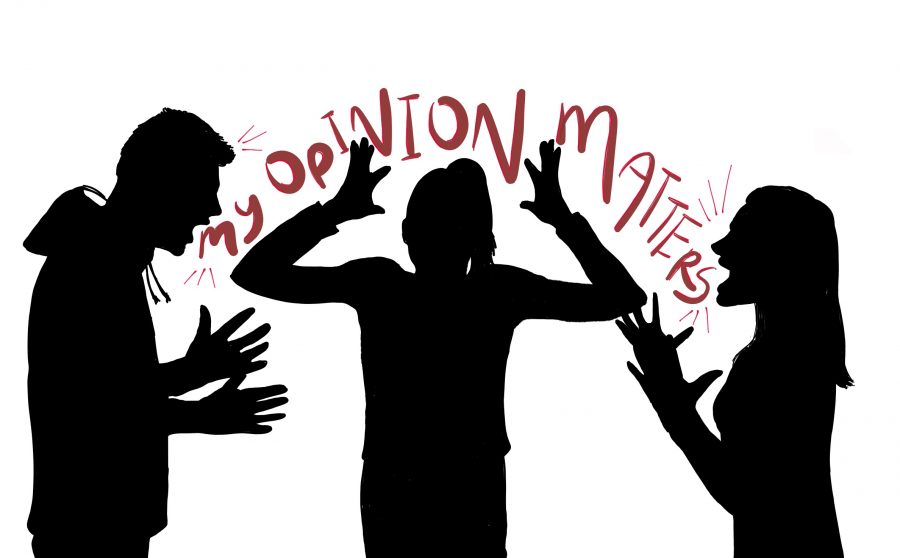“She’s really annoying, Mom,” my 10-year-old self said.
My mother swiveled her amber eyes to me. An immaculate eyebrow arched as she replied, “Who?”
“Desirae*, Maman. She’s spoiled and a cry baby and she’s really clingy to my friends so I can never hang out with them.” I pouted as I remembered Desirae’s childish antics that morning. “I just don’t like her,” I concluded.
My mother peered at me solemnly. “Sabi, that’s not nice.”
“Well, I don’t care if it is! I don’t want to be nice to her!”
My mother stared me down. “I don’t care if you hate this girl – especially if you hate this girl – you do not have an excuse to treat someone poorly,” she proclaimed in her sage, accented voice. “Even if you disagree with someone, you always have to respect that person.”
My fourth grader self was humbled. My mother was right, and her wise words had such an impact that now, nearly seven years later, I still remember and honor them.
But sometimes it seems that members of our community may have forgotten that lesson or missed it entirely.
I’m all for freedom of speech. In fact, it’s why I signed up to be a student journalist in the first place: we have an innate right to be able to express ourselves, and I want to exercise it.
However, sometimes we are all so desperate to be heard that we focus on just making noise and forget to take a step back and consider what we’re actually saying. In the midst of a heated argument or when riled up in a debate, we often completely forget to listen to one another – to take the time to try to understand a different perspective, question our own bias, or simply realize that there is a difference between well-reasoned opinions and words that just take up space.
It’s important that everyone in our community feels comfortable sharing their opinions, but it’s also important that we remember that respect and dignity is far more important than asserting you’re right and others are wrong.
It has always been so much easier to point fingers and ridicule one other than try to understand a different perspective. It has always been cooler or trendier or more widely accepted to pick apart each other’s endeavors than take the time to question our own bias for doing so.
And don’t get me wrong, I understand that writing an entire editorial piece criticizing those who aggressively share their opinions without proper consideration appears rather hypocritical. After all, it wasn’t too long ago when I was just another high-pitched noise asserting my “rightness” over another’s “wrongness.”
But here lies the beauty of being a post-child and pre-adult: we are aware of our need to grow and change. We have escaped the ignorance of our younger years and not completely contracted the hubris and defensive egos that many adults march around with. In other words, yes there will be times when we will be self-centered and oblivious and rather stubborn, but we can become better listeners (and speakers) by realizing that we can still try to be more open-minded and respectful.
Because we are all biased. We are all different. We may hold opposing opinions from one another from time to time. But what makes us a community, what makes us unified, what makes us Harvard-Westlake is that we enough prudence and understanding and consideration to reach across the aisle and consider: am I respecting those I disagree with or am I a prepubescent child that just likes the sound of my own voice?































